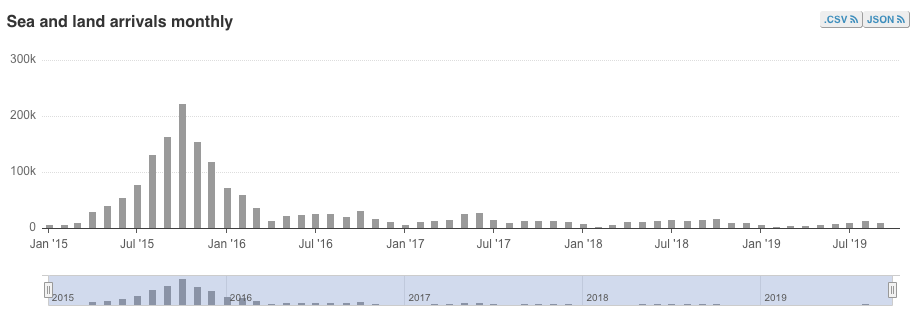- Sometimes one finds lessons for business tactics in unlikely places.
- This is a brilliant article on the drug trade in the UK.
- “Mohammed Qasim, a research fellow at Leeds Beckett University who studies drug dealers, described the Albanian business approach as “fantastic”, adding: “If they were on Dragon’s Den with this model, all the dragons would be giving them money.””
Misc
Miscellaneous is often where the gems are.
Gates on the Future
- A really interesting and optimistic look at the future of health.
- Especially the idea of using an edited microbiome to solve malnutrition.
- Always worth reading Gates as he is putting his considerable money where is mouth is.
Woodford
- Adrian Lowcock, head of personal investing at Willis Owen, summed it up when he told the Financial Times: “We have seen the complete demise of the most famous fund manager the UK has seen for years… This collapse is on a par with the implosion of New Star at the height of the financial crisis, and it will shake the funds industry to its core.”
- Source h/t Alphaville
- We think this article is unfair (1) It was not just a few lone journalists but many fund managers, often in private, voiced concerns about Woodford especially the use of a barbell approach, high % of illiquid (or private) investments, use of leverage, high % ownership in shares, complicated holding structures etc. (2) The industry has suffered because of Woodford and has not gained. In any way. (3) The pressures described are not new and regulation has relentlessly moved in the direction of reforming the industry. It is not flawless.
- Big read from FT on Woodford.
Negotiations
- Seriously interesting article on Calouste Gulbenkian and negotiating.
- If you haven’t heard of him he was the richest man in the world in the 1950s by virtue of negotiating “5%” royalties on Middle Eastern (especially Iraqi) oil developed by western companies.
- Lessons include never put all demands upfront but make demands step by step, often right at the last moment.
- Make agreements so complex that non one will dispute them later.
Nutrition and CO2
- A fascinating piece on how the nutrition of the world’s plants is changing because of climate change.
- “Across nearly 130 varieties of plants and more than 15,000 samples collected from experiments over the past three decades, the overall concentration of minerals like calcium, magnesium, potassium, zinc and iron had dropped by 8 percent on average. The ratio of carbohydrates to minerals was going up. The plants, like the algae, were becoming junk food.“
Academic Publishing
- Academia is the source of a lot of the world’s basic knowledge.
- In this really interesting piece two academics analysed a database of 120 million academic publications from 25 million authors.
- They found some very interesting conclusions.
- Papers have become shorter, while features that attract readers – like titles and abstracts – have gotten longer (academic clickbait).
- There is a huge increase in new authors and they publish at a much faster rate (see chart).
- Overall these results support Goodhart’s law – any measure will eventually become a target.
How do people get new ideas?
- In 1959 a scientist asks Isaac Asimov to join a project to develop the most creative approach possible to a ballistic missile defence system.
- Asimov eventually declines, but leaves one contribution – a wonderful essay on creativity.
- Full of lessons that can be applied to investment meetings. Such as:
- Meet in a relaxed place.
- Meetings shouldn’t always involve the same people.
- No more than 5 people per meeting.
- Try not to link pay to generating ideas – instead link it to executing ideas/tasks.
Pressure Point Theory
- Often peak noise tends to lag the underlying trend that caused it.
- Worse the trend is often already receding when noise picks up.
- A great example is the refugee situation in the EU.
- This is a chart (source: UN) of arrivals into Europe by land and sea.
- Although the numbers peaked in the autumn of 2015 the noise still continues.
- This is important for investing – next time you find yourself pondering noisy news flow, ask yourself – what is the data saying? What is the underlying trend doing?
Spaced Repetition
- Ever wonder what the most efficient way to learn something is?
- This fascinating piece argues that the best approach for long term memory retention and learning is spaced active repetition.
- The idea is to actively (i.e. asking a question) recall information at ever increasing intervals, using software to help timing.
- As the chart below shows – cramming (massed repetition) works well in the short run but for the long run spaced repetition wins.

Great Ideas
- Something to think about in relation to investing. Original ideas.
- “Coming up with a genuinely original idea is a rare skill, much harder than judging ideas is. Somebody who comes up with one good original idea (plus ninety-nine really stupid cringeworthy takes) is a better use of your reading time than somebody who reliably never gets anything too wrong, but never says anything you find new or surprising.”
- From a good article.
Alternative Mylk
- A comprehensive article on the rise of Mylks. Enjoy.
Birmingham
- This article is a real gem.
- It tries to explain a conundrum – why the UK, almost uniquely among developed countries, does not fit the pattern that larger cities are more productive.
- In other words it tries to explain this chart.

Potato
- The humble potato’s well deserved place in human history …
- And how it has as been a victim of its own success.
- Read all about it here.

Revisionist History
- Periodically we will recommend some podcasts for our readers.
- An excellent podcast worth special mention is Revisionist History
- Malcom Gladwell gives a new perspective on history – especially how things have come to be the way they are and why more efficient approaches have been left by the wayside.
- Even though the subject matter isn’t finance, ranging from country music to basketball, these stories are valuable …
- In investing a sense of scepticism and perspective are paramount.
Lists worth reading
- From 2018 but still a really amazing list of things learnt last year.
- Highlights:
- Advertisers place a single brown pixel on a bright background in a mobile ad. It looks like dust, so users try to wipe it off. That registers as a click, and the user is taken to the homepage.
- In Uganda, half the population is under the age of 15.
- US nuclear testing between the 1940s and 1970s may have killed as many Americans (from radioactive pollution) as were killed by the bombs dropped on Hiroshima and Nagasaki.
- AgriProtein is a British company that operates two fly farms in South Africa. Each farm contains 8.4 billion flies, which consume 276 tonnes of food waste and lay 340 million eggs each day. Those eggs (maggots) are dehydrated, flattened and used as animal feed. The company is worth $200m, and they’re planning to open 100 more factories around the world by 2024.
- All references and related articles found in the link. h/t Medium.
Horse Racing
- From last year but still a classic article on how Bill Benter cracked the code of horse racing and made a billion dollars – a must read.
The Bloomberg Keyboard
- The astute observer will notice that our logo resembles the buttons on a Bloomberg Keyboard.
- Here is a fun look back at the history of the Bloomberg Keyboard.
- https://www.bloomberg.com/professional/blog/look-back-bloomberg-keyboard/
Amazon Fires
- Scepticism is a huge part of investing.
- T.H. Huxley said – “I am too much of a sceptic to deny the possibility of anything” (h/t The Browser – more on this site later).
- The Amazon Fires probably caught your attention recently. We don’t mean to stir controversy and the attention is well deserved but …
- Did you stop and question some of the claims in the press you read?
- These two sources did. Here and Here.
- Yes there was a large increase in fires vs. last year but it is only 7% more fires than the average … always check the comparison!
- Lungs of the planet? – the Amazon is a huge producer of oxygen but also a huge consumer. Overall it is closer to balanced!
Supreme
- Long read from GQ on history of the brand
- Some good lessons on how to build a successful brand


